1. Funeral Services

Funeral services might not be a topic at your dinner table, but it’s a massive industry in the U.S., generating tens of billions annually. From embalming to caskets and cremation services, almost everyone interacts with this industry at some point, whether they realize it or not. Funeral homes also handle the complex logistics of death certificates, burials, and memorial services, making them more than just a “casket business.” The emotional weight attached to their services gives them a unique, often unspoken cultural presence.
The rise of cremation and personalized memorial services has only expanded this sector’s reach and innovation. New technologies, like livestreamed funerals and online memorial pages, show how the industry adapts quietly to modern needs. Despite its steady demand, people rarely discuss the business side of grieving, which makes it a fascinating but overlooked part of the economy. It’s a reminder that some of America’s most resilient industries are those we barely think about until we need them.
2. Portable Toilets
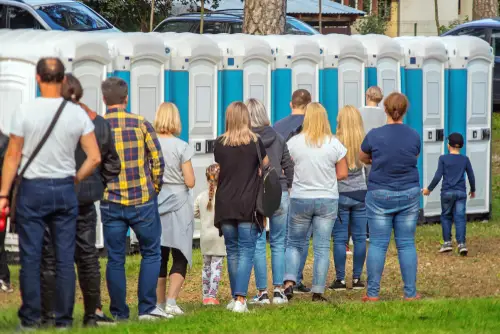
Portable toilets are everywhere—concerts, construction sites, festivals—but they’re rarely glamorous or celebrated. The portable sanitation industry in the U.S. brings in billions a year, supporting everything from large-scale events to emergency relief efforts. Beyond the obvious, companies handle logistics like cleaning, transportation, and even luxury restroom rentals for weddings. It’s a behind-the-scenes service that keeps public events functioning smoothly.
This industry also innovates in unexpected ways, from eco-friendly chemical solutions to touchless sanitation technology. During disasters, portable toilets become critical infrastructure, proving the sector’s societal importance. Despite its ubiquity, people usually ignore its economic impact, which includes thousands of jobs in manufacturing, service, and logistics. It’s the kind of business that literally disappears after use—but the industry itself is booming.
3. Ice Cream Truck Operators

Ice cream trucks feel nostalgic, but the industry behind them is surprisingly structured and profitable. Operators invest in trucks, refrigeration systems, and licenses, and they often map out neighborhoods strategically to maximize sales. Seasonal fluctuations mean operators need to be savvy businesspeople, not just friendly faces with freezers on wheels. It’s a slice of Americana that’s much more than just frozen treats.
Many operators have expanded into catering, private events, and even branded merchandise. The industry also supports local dairy farms and small-batch ice cream makers. It’s a small but enduring part of the food economy that most people take for granted. When summer rolls around, these trucks generate millions in revenue, all while staying mostly out of the public eye.
4. Funeral Flower Suppliers

Floral arrangements for funerals might seem like a sentimental detail, but there’s a whole supply chain built around them. Florists, growers, and wholesalers supply arrangements specifically for memorial services, a market that peaks unexpectedly during certain seasons. These flowers aren’t sold in grocery stores; they’re curated for their emotional significance. The result is a specialized niche that quietly sustains thousands of workers.
This industry also intersects with international trade, as many flowers are imported from South America or Africa. Logistics, storage, and timing are critical, because a delay can ruin an order that carries deep personal meaning. People rarely think about the scale of this sector, yet it’s an essential part of how Americans express grief. It’s a reminder that even the smallest touches have an economic ecosystem behind them.
5. Commercial Janitorial Services

Cleaning offices and buildings might seem mundane, but commercial janitorial services are a multi-billion-dollar industry in the U.S. Companies provide daily cleaning, floor care, and specialized sanitation services that most people never see. From hospitals to skyscrapers, janitorial workers are crucial for keeping public and private spaces functional and safe. Despite their ubiquity, the economic and social importance of this labor is rarely highlighted.
Innovation in the field has grown with technology, including automated floor scrubbers and green cleaning solutions. Many janitorial companies also offer integrated facility management, handling everything from waste removal to maintenance. The industry’s growth is tied to urbanization and corporate expansion, proving its quiet but consistent demand. People might overlook it, but without janitorial services, cities wouldn’t run as smoothly.
6. Industrial Laundry Services
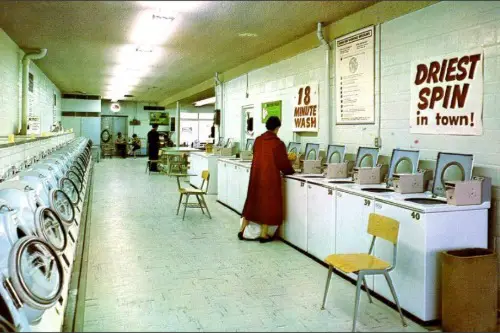
We all do laundry at home, but industrial laundry services keep hospitals, hotels, and restaurants running. These operations handle massive volumes of linens, uniforms, and specialized fabrics, often using complex washing, drying, and folding systems. The efficiency required is astonishing, and mistakes can disrupt entire institutions. It’s a hidden backbone of cleanliness that most Americans don’t consider.
This industry also prioritizes sustainability, using water-saving technology and chemical management to handle high-volume cleaning responsibly. Companies that provide these services often operate regionally, forming essential partnerships with large clients. The labor and logistics involved make this a surprisingly sophisticated business. It’s a sector quietly propping up hygiene standards across the country.
7. Pest Control

Pest control is another industry people avoid talking about, but it keeps homes, farms, and restaurants safe. From termites to rodents, pest control services prevent costly damage and health risks. Technicians use chemicals, traps, and preventive measures that require technical knowledge and licensing. The need is constant, which makes it a reliable and lucrative business.
Modern pest control also involves environmental awareness, with integrated pest management strategies reducing chemical use. Commercial clients depend heavily on these services to comply with health regulations. Despite its crucial role, conversations about the industry usually revolve around “gross stories,” not its economic impact. Yet without pest control, property damage and public health issues would spike dramatically.
8. Funeral Transportation Services

Yes, funeral transportation is a separate industry—and it’s more complex than just driving a hearse. Companies provide vehicles for family members, caskets, and sometimes entire processions. They coordinate timing, logistics, and even interstate transportation for burials. This behind-the-scenes sector ensures ceremonies proceed smoothly, often under sensitive circumstances.
Larger funeral transport companies may manage fleets, maintenance, and trained chauffeurs, blending logistics with customer care. Despite its emotional importance, most people never consider the business that facilitates these final journeys. It’s another reminder that grief has an entire economic ecosystem surrounding it. The industry thrives quietly, providing dignity in moments people don’t want to talk about.
9. Roadside Assistance Services

Roadside assistance is literally there when you’re stranded, but it’s not a topic anyone discusses until the moment you need it. Companies like AAA and regional towing services generate billions each year helping with flat tires, lockouts, and towing. Behind the scenes, these businesses coordinate fleets, technicians, and customer service teams around the clock. It’s an industry based entirely on emergencies—yet it’s steady and growing.
Technological innovations like app-based dispatch and GPS tracking have modernized the sector, making services faster and more efficient. It also intersects with insurance, vehicle maintenance, and fleet management, forming a hidden but essential part of the transportation economy. Few people think about the planning and infrastructure required to keep this safety net operational. Without it, minor car troubles could become major crises.
10. Traffic Cone Manufacturing
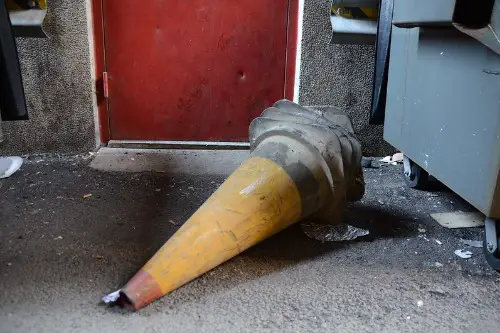
Traffic cones might seem trivial, but manufacturing them supports roadwork, events, and safety nationwide. Companies produce cones in durable, reflective materials that comply with strict safety standards. This industry is small but specialized, with high demand from construction firms, municipalities, and event organizers. It’s an example of a seemingly mundane product that quietly underpins public safety.
Innovations include collapsible cones, LED lighting, and environmentally friendly materials, showing how the sector adapts to modern needs. Production requires expertise in plastics, colorants, and reflective coatings. The industry also plays a role in emergency management and temporary traffic solutions. People rarely think about the cones themselves, but the economic footprint is significant.
11. Scaffolding and Temporary Structures
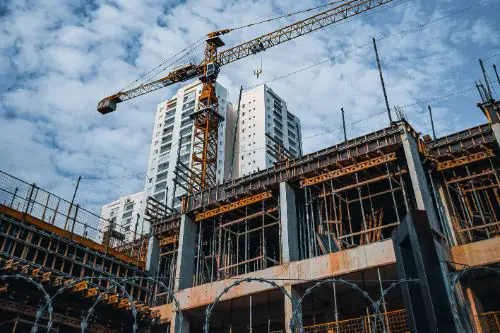
Scaffolding is literally the framework for construction, yet few consider it a standalone industry. Companies design, manufacture, rent, and install scaffolding for commercial and residential projects. This sector is critical for safety and efficiency, enabling workers to reach heights and complete projects on time. Despite its ubiquity, most people only notice scaffolding when it obstructs their view.
Temporary structures also include stages, tents, and modular buildings, which support events, film sets, and disaster relief. This industry is highly specialized, requiring engineering knowledge and logistics coordination. Its growth parallels urban development, festival culture, and emergency response infrastructure. It’s a reminder that some industries quietly scaffold society itself.
12. Industrial Packaging
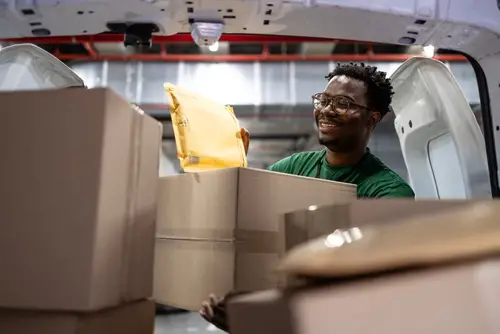
Industrial packaging isn’t flashy, but it’s essential for shipping, storage, and product safety. From cardboard pallets to specialized containers for chemicals, packaging supports countless supply chains. Companies innovate with materials, designs, and automation to ensure efficiency and protection. Without these systems, goods would be more vulnerable to damage, spoilage, or contamination.
The industry also intersects with sustainability, recycling, and transportation regulations. Packaging companies often collaborate closely with manufacturers to create tailored solutions for fragile or regulated products. Despite being overlooked, the sector has a huge economic footprint. It quietly keeps commerce flowing, from factory to consumer.
13. ATM Maintenance and Cash Logistics

ATMs feel ordinary, but maintaining them is a specialized industry that keeps cash flowing. Companies handle cash replenishment, software updates, and hardware repairs. They also coordinate security, armored transport, and regulatory compliance. The convenience we take for granted is supported by a complex logistical network.
The industry employs thousands in technical, operational, and security roles. With digital payments growing, companies are adapting, adding hybrid services and remote monitoring. Despite being invisible to most users, it’s a critical part of banking infrastructure. Without it, everyday transactions would face serious disruptions.
This post 13 American Industries Built on Things Nobody Talks About was first published on American Charm.


